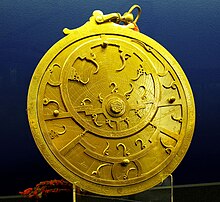History of Swabian Sicily
William III of Sicily was deposed in 1194 and was succeeded by his grandaunt Constance of Altaville, who nine years earlier had married Henry VI, son of Frederick Barbarossa.
She then ruled as regent on his behalf until her death in 1198, upon which pope Innocent III took over as Frederick's guardian, entrusting him to a regency council and recognising him as heir to the throne of Sicily.
In the Kingdom of Sicily and much of Italy, Frederick built upon the work of his Norman predecessors and forged an early absolutist state bound together by an efficient secular bureaucracy.
He enjoys a reputation as a brilliant Renaissance man avant la lettre and a visionary statesman, scientist, scholar, architect, poet and composer.
[7] Almost every aspect in Frederick’s tightly-governed kingdom was regulated, from a rigorously centralized judiciary and bureaucracy, to commerce, coinage, financial policy, legal equality for all citizens, protections for women, and even provisions for the environment and public health.
A new gold coin called an augustalis was introduced and became widely circulated in Italy, admired even today for its splendid proto-Renaissance style and fine quality.
From the latter period of his reign, Frederick enacted far-reaching reforms to establish the Sicilian kingdom and Imperial Italy as unified state bound by a centralized administration.
In October 1251 Conrad left for the Italian mainland, where he met the Imperial deputies, and in January the following year he landed at Siponto, from which he and Manfred pacified the Kingdom after small papal-supported rebellions had broken out.
However, thanks to the diplomatic skills he had inherited from his father, Manfred reached an agreement with the pope, allowing the papal occupation of the army but reserving the rights of Conradin and his family.
Not a school in the institutional or academic sense, it included Giacomo da Lentini, Cielo d'Alcamo and Guido delle Colonne and its lyric poetry in the courtly Sicilian vernacular gave rise to the sonnet.
Theodore of Antioch arrived in Frederick II's court in 1230, where he was made astrologer, fortune-teller, physician and scientific advisor to the king, replacing Michael Scot, who had died.




